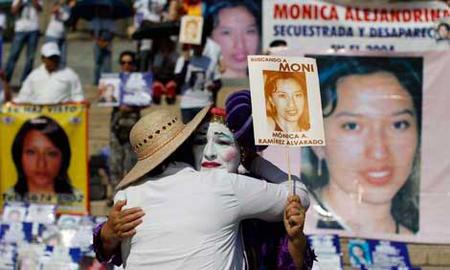While at first glance it appears to be a very small step without much consequence, the unanimous approval by Mexico’s Senate and Chamber of Deputies of a law that recognizes and means to alleviate the damage and suffering experienced by victims of state and criminal violence may turn out to be of enormous importance. It gives faces, histories, and official recognition to the victims who have heretofore been seen simply as nameless collateral damage in the war against illicit drugs, official and organized crime.

On April 30, Mexico’s Senate and Chamber of Deputies unanimously approved a General Victims’ Law that would offer judicial, medical and economic assistance to victims of violent crimes. The law applies to victims of criminal aggression as well as victims of state violence. It authorizes the creation of a national registry of victims and a permanent assistance fund, both under the control of a national victims’ system that would include participation of civic groups that have dedicated themselves to the stemming of social violence.
The law will create a new institution to help victims of violence and violations of human rights to repair the injuries they have suffered. It calls for the creation of an Executive Commission with Attention to Victims, within the executive branch of the federal government. The commission will be decentralized, with a presence in every state, funded out of the federal budget. Funding will come from a variety of sources, including bail funds, fines and goods confiscated from members of organized crime. The commission will administer the national registry of victims and the permanent assistance fund. All this will form the national system of attention to victims.
The official recognition of the victims of Mexico’s violence has been forcefully advocated by the grassroots Movement for Peace with Justice and Dignity (MPJD), and by the group’s leader, Javier Sicilia. Sicilia stressed it in his dialogue with President Felipe Calderón last summer. The new law thus represents the first legislative victory of the activist group.
The problem, of course, is that there is still a great fear among victims. It is well known that only a very small proportion of violent crimes are ever brought to trial, not only because of the well-documented indifference and active connivance of the authorities but because many crimes go unreported for fear of reprisals. It is not clear whether the new law can overcome this deep-rooted impunity. But it is a good first step.
For more from Fred Rosen's blog, "Mexico, Bewildered and Contested," visit nacla.org/blog/mexico-bewildered-contested.

